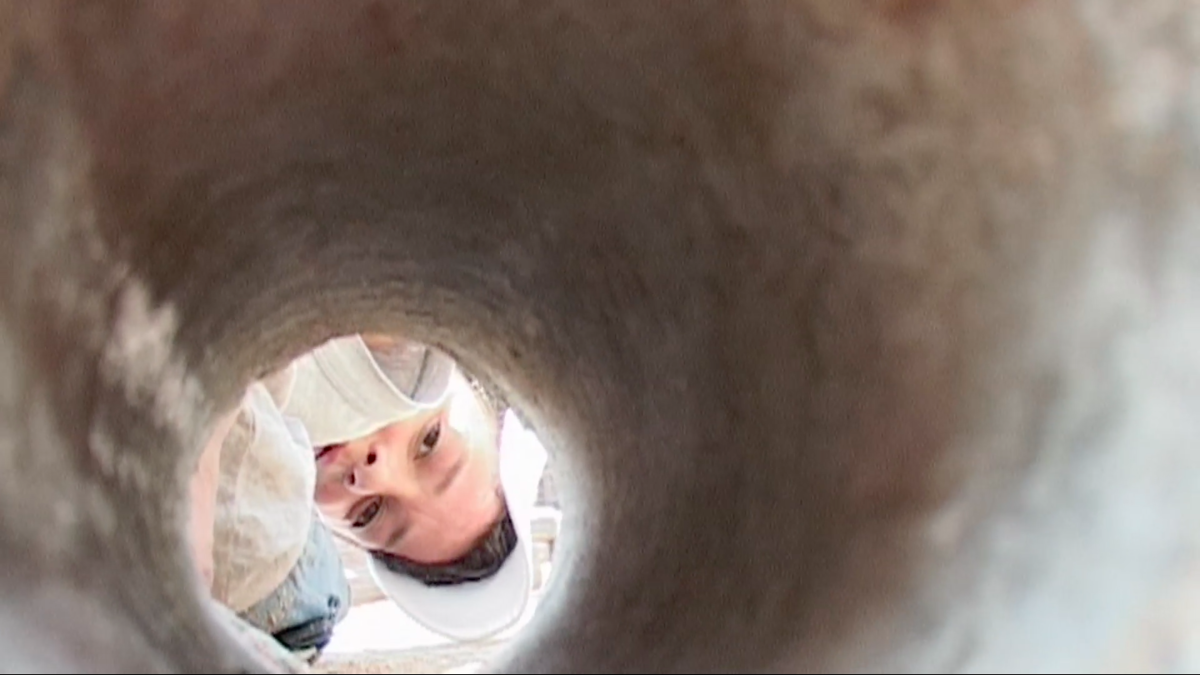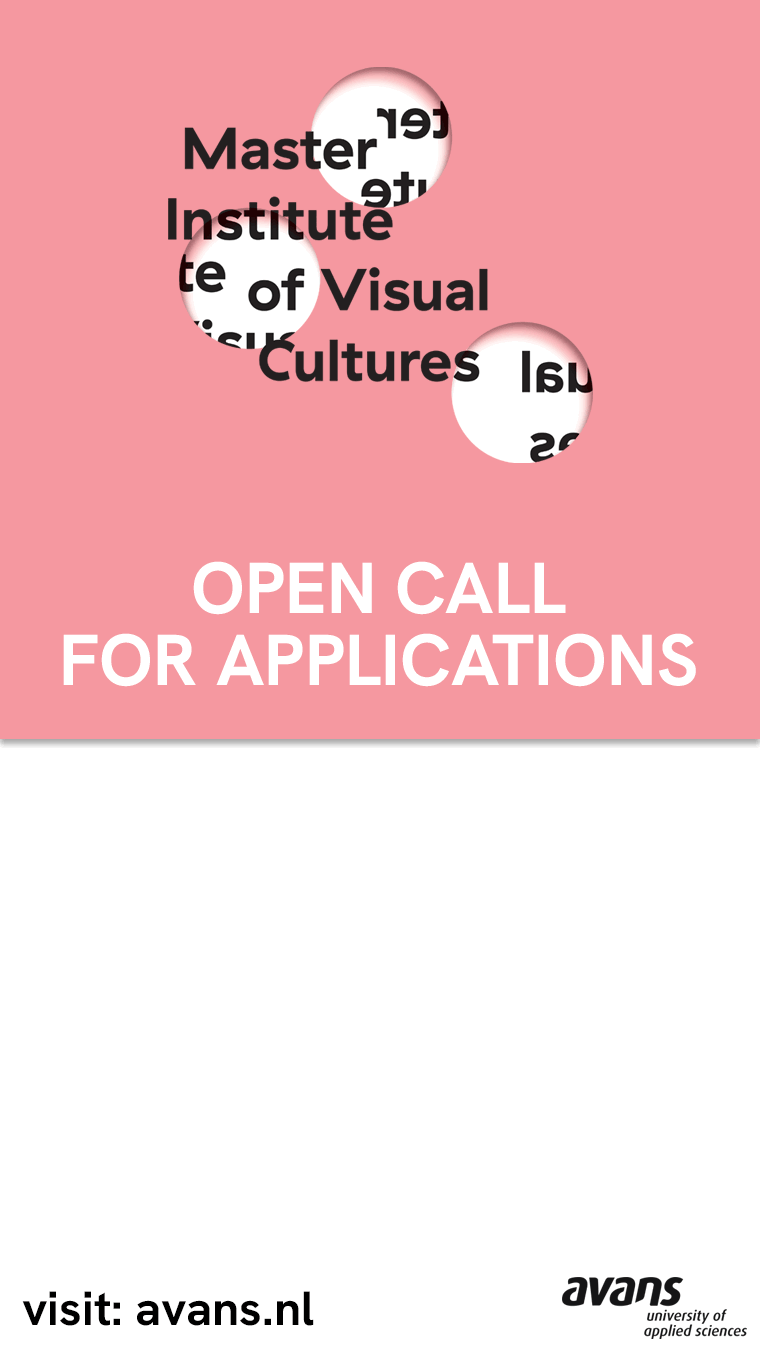Unreformable: Week #6
Infiltrators
Khaled Jarrar
2012
70 Minutes
Artist Cinemas
Date
Streaming till November 30
Picturing the uncertain and tense search for a route across, under, or over the border wall, Palestinians seek to penetrate the highly militarized West Bank. Alternating between cigarette breaks, detours, waiting, and moving the film depicts the cunning, unnerving, and constant struggle to defy captivity and occupation.
The film is presented alongside a text response by Ciarán Finlayson.
Infiltrators is the sixth and last installment of Unreformable, an online program of films and accompanying texts convened by Adelita Husni Bey as the eighth cycle of Artist Cinemas, a long-term, online series of film programs curated by artists for e-flux Video & Film.
Unreformable runs in six weekly episodes from October 18 through November 28, 2021, streaming a new film each week accompanied by a commissioned interview or response published in text form. A special repeat screening of all films feature in Unreformable will stream on Monday, Novermber 29.
Khaled Jarrar’s Inflitrators
By Ciarán Finlayson
In Anna Seghers’s 1944 novel Transit, European refugees are tossed from embassy to embassy by choppy waves of wartime bureaucracy. An irrational administrative system of residence permits, transit passes, and exit visas leaves most people who attempt to depart France for the Americas dashed on its rocks, to be captured or killed by representatives of fascist Spain and Germany. In one scene the protagonist, a German man who has escaped a concentration camp, watches a large group of Spaniards look despairingly at what was their last best hope, a Mexican consulate that has been inexplicably shuttered:
“But the people continued to wait there as if the locked gate would take pity on them. The wind, even as it buffeted and pummeled them, seemed also to hold them there together in a vortex of fear. They looked pale and frayed as if the expected ship were the last ferry across the Dark River Styx; and yet they were barred even from taking this ferry because there was still some life in them and they were destined for extraordinary suffering.”[1]
Khaled Jararr’s 2012 documentary Infiltrators speaks in this register—eschatology and irony— though its nameless Palestinian protagonists are not thwarted emigrants but native commuters. His shaky Betacam footage, presented without place markers or talking heads, shows construction workers scaling the border wall from the West bank side to get to work in Israel, or attempting to climb it with pieces of wood or a rusted bed frame. They journey back in the dead of night streaming into dark, scrubby valleys illuminated only by the foreboding orange of the streetlamps on the highway. They are pursued by the bright green lasers of the Israeli army’s detention vans. Young women who wish to care for their relatives in hospital ride in vans and make contingency plans with their smugglers; families hand off swaddled infants while trudging through rancid water in illegal tunnels; boys pass fresh bread though holes in the separation fence. There are religious commuters too: a woman from Qattana crouches by a barbed wire fence all day, waiting for the army’s jeeps to leave so that she might cross the border to Jerusalem. She laments to the artist that Arab countries have done nothing to safeguard Muslim access to Al Aqsa—one of the few explicit commentaries on politics in the film. Her group has been forced to cross the wall in order to worship, “What else can we do?”
Through furtive camerawork in grainy, low-light conditions, Infiltrators suggests a time-based, low-res counterpart to South African photographer David Goldblatt’s The Transported of KwaNdebele (1989), documenting the murderous drudgery of the Apartheid-era commute from the slums to Pretoria. As with The Transported, the principal subjects of Infiltrators are workers. We see groups of them in fields before dawn, incredibly still, turning their heads in stuttering slow motion. In the high-grain video they begin to blur into the landscape. One man tells Jarrar that he makes this journey every week or so, hiding outside for up to four days at a time looking for a safe chance to cross, “Impossible difficulties and day and night suffering…we spend all our money just waiting.” They are being toyed with by the soldiers, who pour their water out, burn their ladders, and use police dogs to pin the injured to the ground for long periods. “This is not a life,” he tells Jarrar.
The necessity driving the infiltrators is grounded by three sequential scenes at the heart of the film: First, a mother and daughter present travel permits to a Qalandia checkpoint guard—a young woman who separates them. The daughter who is denied entry turns to present her valid paperwork to the camera as evidence. Second, several dozen women hold their IDs open at the bottlenecked checkpoint, and one of them has had enough, “I don’t need your permit!” she shouts as she rips it up, earning her applause from the crowd. “It’s a disgrace that you give prayer permits,” she continues, “And all because of one soldier, a bitch who decided to humiliate us. But never! We will never be humiliated.” Third, rounds are fired into the crowded checkpoint and teargas floods the frame, changing the white balance and overexposing the footage, rendering the chaotic scene both hard to watch and physically difficult to look at.[2]
In 2011, when Palestinian president Mahmoud Abbas made a push for his country to receive national recognition from the United Nations, Jararr designed an unofficial stamp for the sovereign state of Palestine. In a series of performances, he embossed it on real passports belonging to tourists coming and going from Qalandia and Ramallah—implicitly asking participants to declare an allegiance, and risk trouble for themselves at future border crossings. (The artist was himself unable to attend the installation of Infiltrators at New York’s New Museum three years later, when Israel denied him right of exit.) Unlike the prefigurative stamp, there is nothing triumphal in this film; impassioned moments of resistance are immediately and thoroughly smothered by official forces. Still, there is something undeniably hopeful about this footage, seventy-odd minutes of continuous, low-level subversion. Jarrar shows us nothing that will change the conditions at the border, but his unsentimental portrayal of humiliation and resistance to it—the absurdity, monotony, and naked repression that fill the lives of those in transit—keeps the flame for the popular will. Writing earlier this week, Richard Seymour wrote that “one reason why George Floyd became a global figure is because, while not everyone is likely to be murdered by a cop, everyone is susceptible to injury and humiliation. Injustice is universal. It’s always a ‘bread-and-butter’ issue.”[3] When one recalls that the movement that developed in response to Floyd’s death triggered a qualitative leap in the size and seriousness of the Palestinian solidarity movement in America this past May, one can’t help but view these scenes of successful escape and thwarted defiance in a new light.[4]
The smugglers never announce their convictions, but certain thrilling sequences here are enough to convince you that they’re doing God’s work; one hears the seriousness of their countersurveillance work, sees the intensity of the car chases, observes them guiding the hopeful through the pitch black desert using only the light of the stars. But they are fundamentally ambivalent figures, driven less by commitment to the rights of the contained than by economic compulsion—turning to this work when other aspects of the economy died with the erection of the wall. When Jarrar asks a young man in sunglasses how he can hire a driver to help him get to the other side, the man explains “There is no such thing…they’re just ripping people off,” picking up busloads of people and dropping them five miles from Jerusalem, leaving them to find their way back to the taxi depot on foot. When not entirely fraudulent, they demand exorbitant prices for their permission to climb a ladder that they’ve propped against a wall in full view of the border control. But when interviewed by Jarrar, the smugglers tell a different story. They have networks on both sides to ensure the safe passage of their customers, they do twenty-four hour stakeouts and charge a merely symbolic fee, “just enough to pay for gas.” In the end, they are themselves as bound up in the general humiliation of the colonial situation as anyone else. Still, the film closes on an unidentified man smoking a cigarette in the morning. He adjusts his trim, fashionable sweater and dons his white Nike slip-ons before kissing his mother and father goodbye. Forest birds chirp for the rising sun as he heads into a clearing to start his day. It may not be a life, but it’s a living.
[1] Anna Seghers, Transit, trans. Margot Bettauer Dembo (New York: New York Review Books, 2013), 66–67.
[2] Eyal Weizman, Hollow Land: Israel’s Architecture of Occupation (New York: Verso, 2007), 145–47.
[3] Richard Seymour, “The Resources of Reaction,” Salvage, November 16, 2021, https://salvage.zone/online-exclusive/the-resources-of-reaction/.
[4] Hannah Black, “From Minneapolis to Jerusalem On Black–Palestinian solidarity,” Jewish Currents, October 25, 2021, https://jewishcurrents.org/from-minneapolis-to-jerusalem
-
Ciarán Finlayson is a writer and editor based in New York City. Finlayson’s essays on art and politics have appeared in magazines and journals including PARSE, Kunst und Politik: das Jahrbuch der Guernica-Gesellschaft, and Artforum, and he is currently the Managing Editor at Blank Forms.
For more information, contact program [at] e-flux.com.


